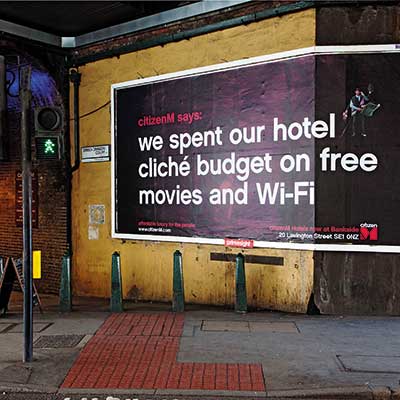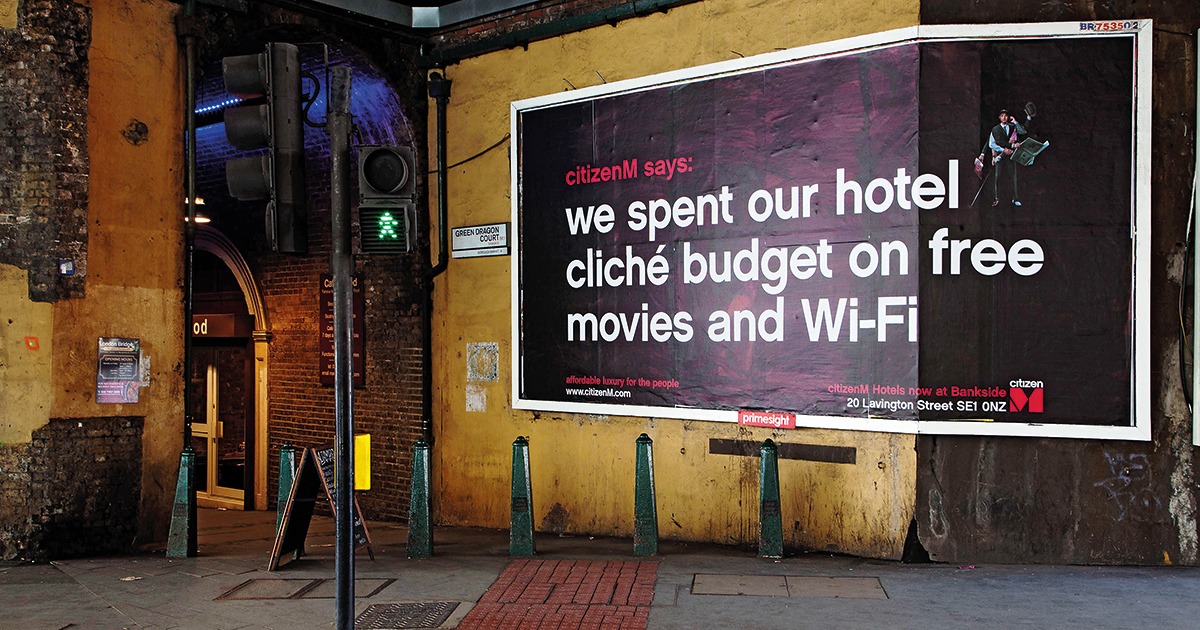Life is often more of a rollercoaster than rainbows and butterflies, taking us up, down and around and around. Businesses will invariably experience the same bumpy ride, especially those in the hospitality industry. Often, at the beginning of the year, owners will simply close their eyes and hope for a better 12 months, or perhaps for nothing more than ‘stability’. Ralph Nader, CEO of Amber Consulting, elaborates on business strategies for 2019
The hospitality market is a highly competitive environment that is continuously driving restaurateurs and hoteliers to search for new methods, elements and tools to help them give a stellar performance. In order to thrive in this hyper-competitive marketplace, everyone is in search of innovation; the development and application of novelties, inventions and originalities that serve as a powerful motivation for hotels, restaurants, beach clubs and indeed any hospitality entity, whatever the scale.
Innovations of all kinds are essential for the viability, competitiveness and growth of hospitality, constantly pushing service standards and guidelines further. Therefore, innovation is not only limited to innovative products (such as a new item on the menu) or services (self-check-in systems, for example), but also new business models, organizational structure, goals, strategies and systems. So when we say innovation, we mean rethinking, restructuring, rebuilding and remodeling, focusing on the products and the business model. It’s a combination of both – it’s not either/or – rather, it’s and.
Success stories
Innovative business models have revolutionized the hospitality and tourism industries.
Technological innovation
Examples of the vast number of technologies include: self-service systems; lobby media panels; bring-your-own content platforms; smartphone boarding passes; hotel service optimization systems; guest device connectivity tools; voiceover internet protocol phones; and wearable devices to identify guests. And that’s not all – there is also Virtual Reality (VR), with Marriott’s experiment with ‘teleporters’ really catching the imagination of travelers. With Best Western Virtual Reality Experience, customers can actually view the rooms, hotel lobbies and amenities prior to arriving at a property. VIP Worldwide produce VR experiences for Marriott, Four Seasons and Rosewood. In a separate development, Hilton has launched a mobile campaign featuring an interactive 360° video that takes the customers on a virtual vacation.
Services innovation
New entities offering innovative services are challenging incumbent service providers. The online booking websites, such as Booking.com, Trivago and Hotel.com, have led to many traditional travel agencies closing down.
Affordable Luxury
Marriott partnered with IKEA to create the Moxy brand, targeting the millennial travelers who do not want to pay 5-star hotel rates, yet are not drawn to the style of less expensive hotels. A collection of innovative concepts, citizenM is a hotel driven by one desire: to create affordable luxury.
Sharing or collaborative economy
Without owning a single room for rent, Airbnb has served millions of guests and has been valued at about USD 38 billion. Uber, the largest cab services network, owns no taxis.
Plan the new destination: where are you going?
First things first; in order to build the future, it’s important to study the past and look closely at the present. Thus, when developing a new vision or a strategy for the mother company of your restaurant or hotel, carrying out a detailed internal analysis of the firm’s current strengths and weaknesses is a must. Only then will the vision – what to keep, what to modify and what to let go – be clearer.
Think out of the box and start this process from scratch. Sometimes this can help you realize that you’ve forgotten some of your strengths, which could prove to be a source of profitable assets, or discover that an effortless change, such as a new menu font and format, is long overdue. In this way, you’ll find yourself planning a creative process for shaping the future.
Who is going with you?
No matter your industry, your employees are your company’s real competitive advantage. They’re the ones making the magic happen – so long as their needs are being met. It’s a fact that employees are one of the most valuable and important assets in any organization, especially when it comes to the hospitality industry; they are the face and soul of your organization, fueling your production process, from the cook inside your kitchen to the floor manager running your operation. Therefore, optimizing a company’s performance requires a solid, loyal and well-trained human capital. Therefore, to expand on this famous saying…
CFO to CEO: “What happens if we invest in developing people and they leave us?”
CEO to CFO: “What happens if we don’t and they stay?”
… in a well-organized business entity and within an efficient business structure, investing in staff and training may well come at a cost.
How about restructuring to increase competitiveness, cultivating your uniqueness, reinventing your concept and rethinking your model?
When it comes to the hospitality industry, following trends and adapting to the new conditions of the market will be critical to winning your market share.
In other words, hospitality entities should strive to differentiate themselves and leverage their strengths against their competitors. They have no choice but to realign, restructure and reorganize to become more competitive or to retain their position in the market.
This might sound like reinventing the wheel, but it can actually be done by adopting a simple process of consecutive small changes that combine to make a big impact.
However, restructuring can also mean a major breakthrough, through a total change of concept, a major renovation or even a completely new business model. Consider the dynamic force that is Airbnb, a worldwide pioneer in home-based accommodation and short-term rentals that didn’t exist until 10 years ago. The company faces obstacles and challenges, like so many other businesses do, but there’s no denying that the platform and tactics it has used have drastically changed the hospitality game.
Human beings undoubtedly have a tendency to be reluctant to change, which is even stronger in our region due to decisions driven by ego and fear of the ‘eyes of the beholder’. However, as the saying goes, ‘In crisis, do not fear making big changes, do fear not making any.’
Decisions, decisions
When restructuring, three main points should be clearly set out in order to project the future and build a solid path toward it:
• What is your vision and what are your goals? Are they the right ones for your company? And are you looking in the right direction?
• Who are your target markets and segments? What are their needs and behaviors? Are your offerings meeting their demands? Are you satisfying their needs and evolving along with them?
• What is the positioning of your concept or brand? How are you being perceived? Is your positioning still in line with your target market?
I is for implementation
Hospitality owners and executives have realized the need to restructure and remodel systems, and they have understood the importance of innovation, but they just haven’t been able to act: no implementation!
Why the discrepancy between the theoretical and what is really happening? Why is it so hard to implement and what are the reasons for this apparent conflict and hesitation between affirming the urge to innovate and applying it? Sometimes, it is down to pure fear; fear of failure, fear of the unknown, fear of criticism, fear of change or fear of being stopped from taking that all-important step.
After all, innovation without implementation is mere ideation. Thus, every member of the company must sense the burning need for innovation and creativity for it to succeed. True, it could be a risky process; however, hospitality businesses must realize that what consumers asked for yesterday will have changed by tomorrow, and if they aren’t evolving and responding at the pace of their customers, they will lose out.
Dare to change, innovate and evolve, and be up for new challenges before it is too late and you are out of the game.

















